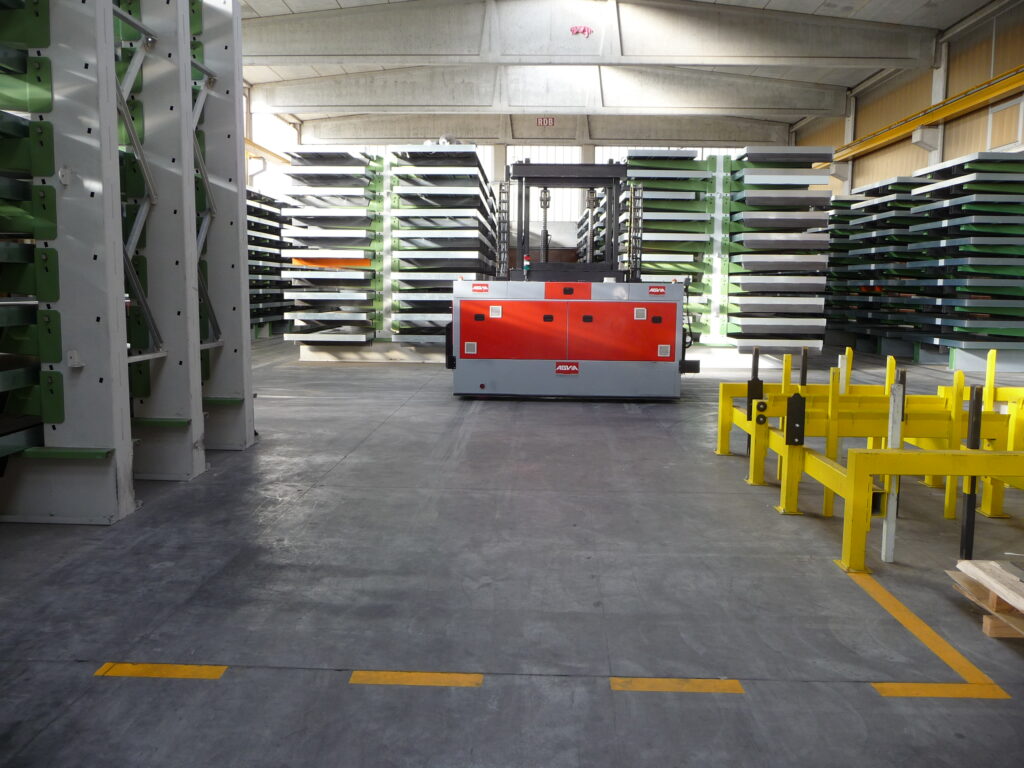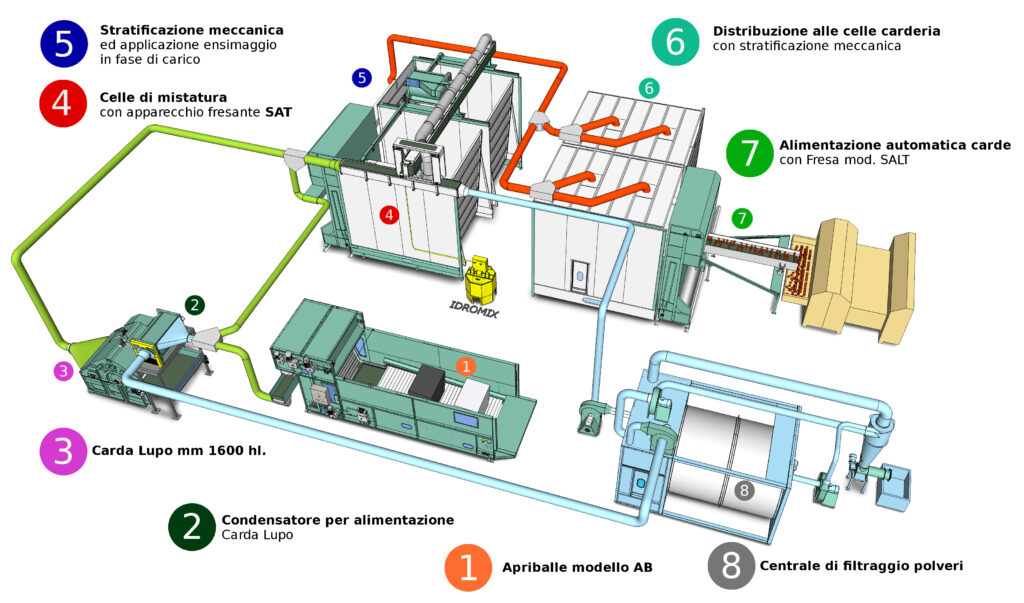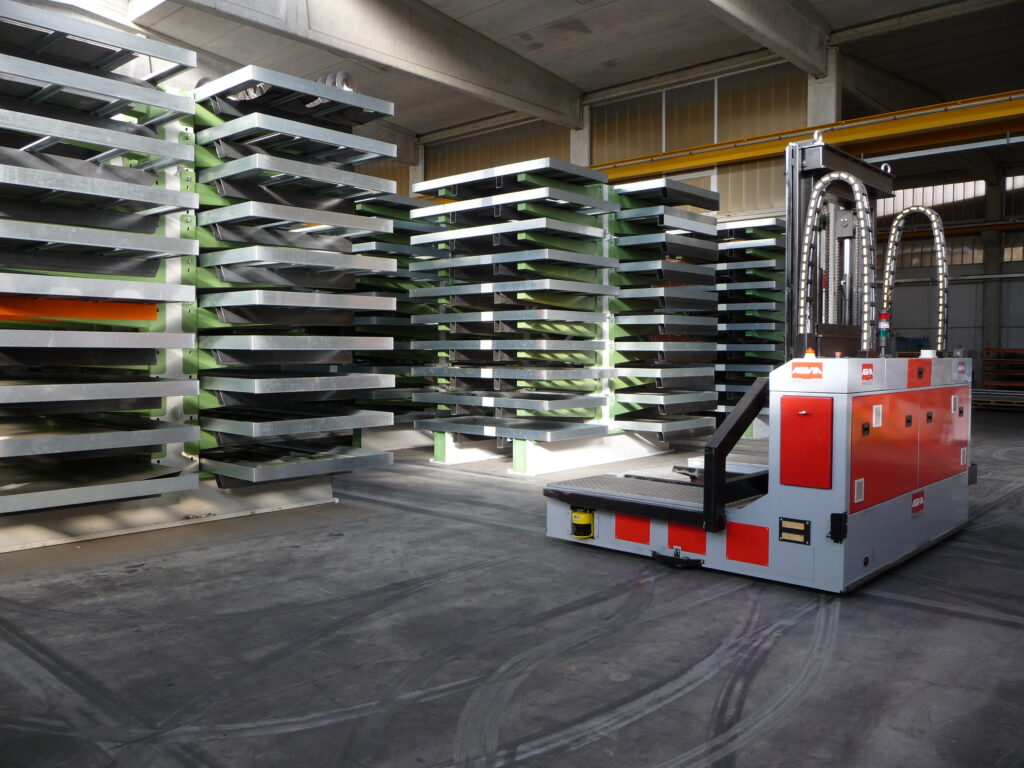Tecnomeccanica Biellese is a qualified partner wherever loose fibres are processed. The Group’s executives promote technological innovation through both custom-made and in-house solutions
Tecnomeccanica Biellese, founder company of Gruppo Beppe Ploner, for over fifty years a beacon in Italy and in the world for design and manufacturing of textile fibre processing plants for spinning preparation, continues its pursuit of innovation.
The historical family run company, established in 1969 by Giuseppe Ploner, is complemented by Coppa srl, a company located in the Biella area, controlled by the holding since 2009, specialised in drawframe combing systems.
Tecnomeccanica Biellese offers its services as a qualified partner in all fields of loose fibre processing (combing, spinning, manufacturing of non-woven cloths, felts, batts and waste regenerating lines); it also operates in suction and dust removal of rooms by dust suction, automatic filtering systems and dust packing.
Made to Measure on client’s specification

Just to give an example, last year we finished a plant for a customer with a frequent small lot cycle, difficult to implement with traditional systems, due to the very small amount of material to be processed. A further challenge consisted in fitting our machines in the rather small space available.
We succeeded in offering a technical solution with a minimum footprint while ensuring a quality process and the user-friendly approach of a more traditional plant. At present, the client and ourselves, we are both satisfied with the plant, which shows that flexibility is a winning card on the market.Stefania Ploner
Innovative hopper feeders

A few innovations are available aiming at a quality processing cycle downstream of the supply chain, like automatic hopper feeders.
«Feeders carry out a delicate operation – explains Mrs. Ploner – both in terms of management of long fibres, like wool and cashmere which cover our major, native market, and of TNT where exact proportions and specifications in mixing various components are mandatory. A quality product in terms of uniform colour or percentage of its components depends on the quality of the blend; the more we advance a batch quantity control, the better quality we obtain. Nowadays, single or battery feeders according to the number of components are capable of dosing the exact percentage of each component. To this aim, we can fit feeders on weighing units that can gradually measure and check the amount of each component while entire bales are loaded on the machine. This way, the operator can dose components instantly on the loading table; he then starts the uninterrupted cycle thus obtaining a highly efficient batch».
Tecnomeccanica Biellese has developed also a different measuring method to meet the demand of customers who do not need such a high productivity, though requiring a detailed check of the proportions of blend components to be processed.
Tecnomeccanica Biellese’s managerial attention to innovating solutions is reflected also in its internal organisation. In order to be able to optimise the supply of sheets to the cutting and/or punching sections, they integrated an automatic warehouse with a robotic forklift truck. This support helped them to cut dramatically the time between pick up of raw materials and loading of the machine, with the operation directly controlled from leads in the engineering department or from CAD/CAM stations.

The automatic hopper at Tecnomeccanica Biellese consists of 300 drawers holding up to 3,000 kilograms of standard sheets and up to 6 m long sheets. Drawers are arranged in eight cantilever rows, each including ten vertically displayed spaces. The storage area is supported by a drawer handling area controlled by a robotic forklift truck that moves fully autonomously and safely on predefined magnetic tracks on the floor, along the aisles. «The robotic forklift truck – adds Mrs. Ploner – picks up the sheet drawers and puts them into special bays; here sheets are uploaded/downloaded and put back into the drawer. From the engineering department or in the workshop a qualified operator can call up sheets and take them to the processing department».
A connection with the factory management system helps keep stocks updated, while monitoring inventory and types of items on stock.
This project, now part of the everyday routine, was born in the company in a tempore non suspecto, when incentives on digitalisation were not so popular: it is a proof of the managers’ attention at technological innovation, both regarding manufacture and customer oriented solutions.

Looking ahead with optimism
Tecnomeccanica Biellese has adopted policies based on sustainability and environment-friendliness: solar panels cover part of its energy consumption; the company chose a separate waste collection; waste from processes (mainly metals) goes to specialists to be melt and recycled.
«Thinking of customer oriented sustainability – Ploner adds – we improved our machines so as to cut cleaning and maintenance time, expedite inspection of parts mostly subject to wear, in order not to overestimate the need to replace them. By doing it, we save time and machine downtime in general, producing less waste caused by unnecessary replacement».
The company pays attention to work ethics too. «Our approximately 40 employees are highly specialized workers; they usually enter our team quite young and stay with us during their working life, keeping the staff’s turnover low. It is a winning approach for the business, since employees develop a more and more specific competence and a deep attachment to their job, while a family environment helps them work in a stress-free environment maintaining a constructive dialogue».
Our business is over 50 years old and we feel capable of taking up the challenge of future with fresh energy so as to find new methods to make and re-use yarns and fabrics in an environmentally friendly way, with great attention to details, as a tradition of our beloved “Made in Italy” way of doing it.Stefania Ploner




